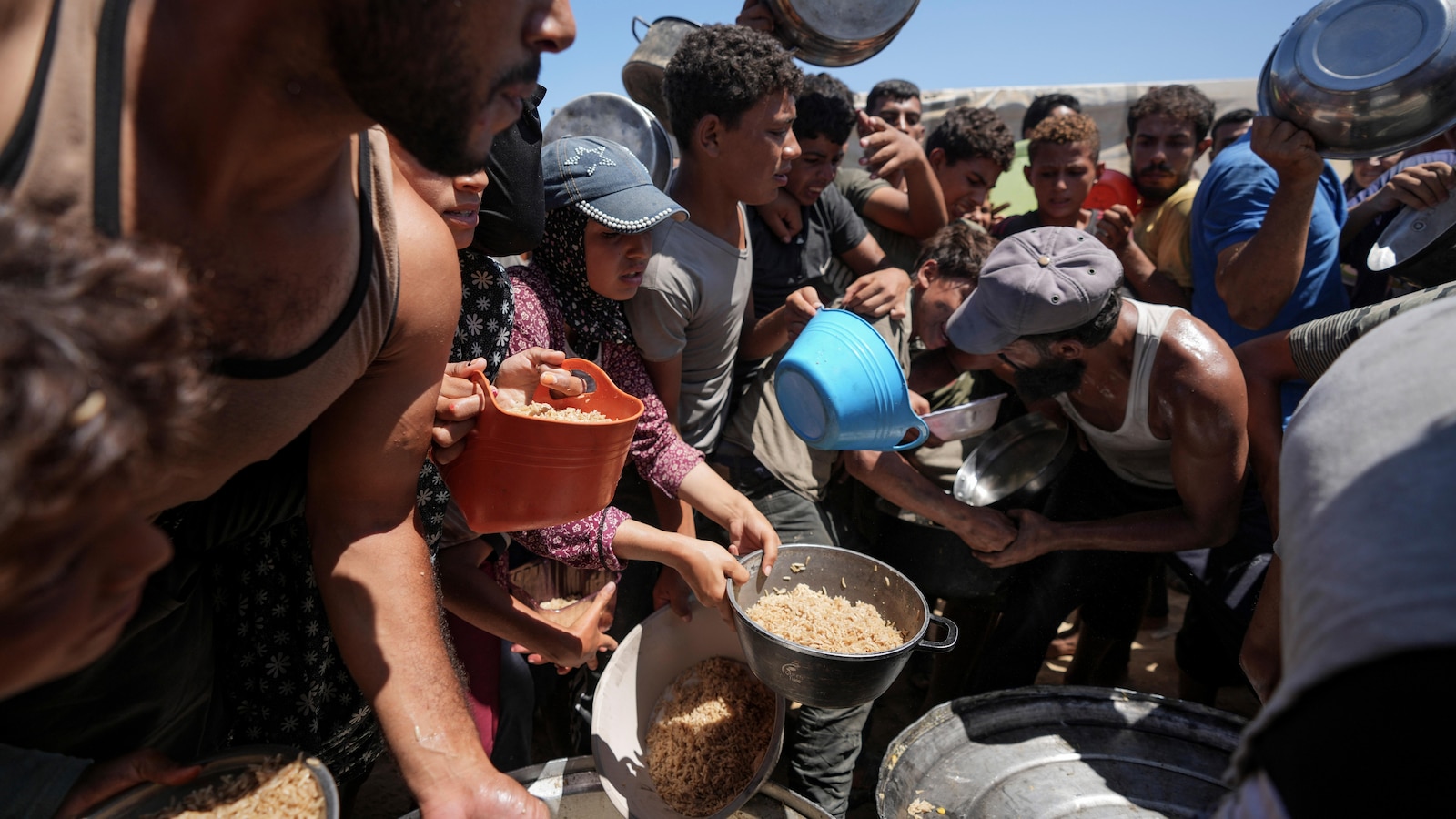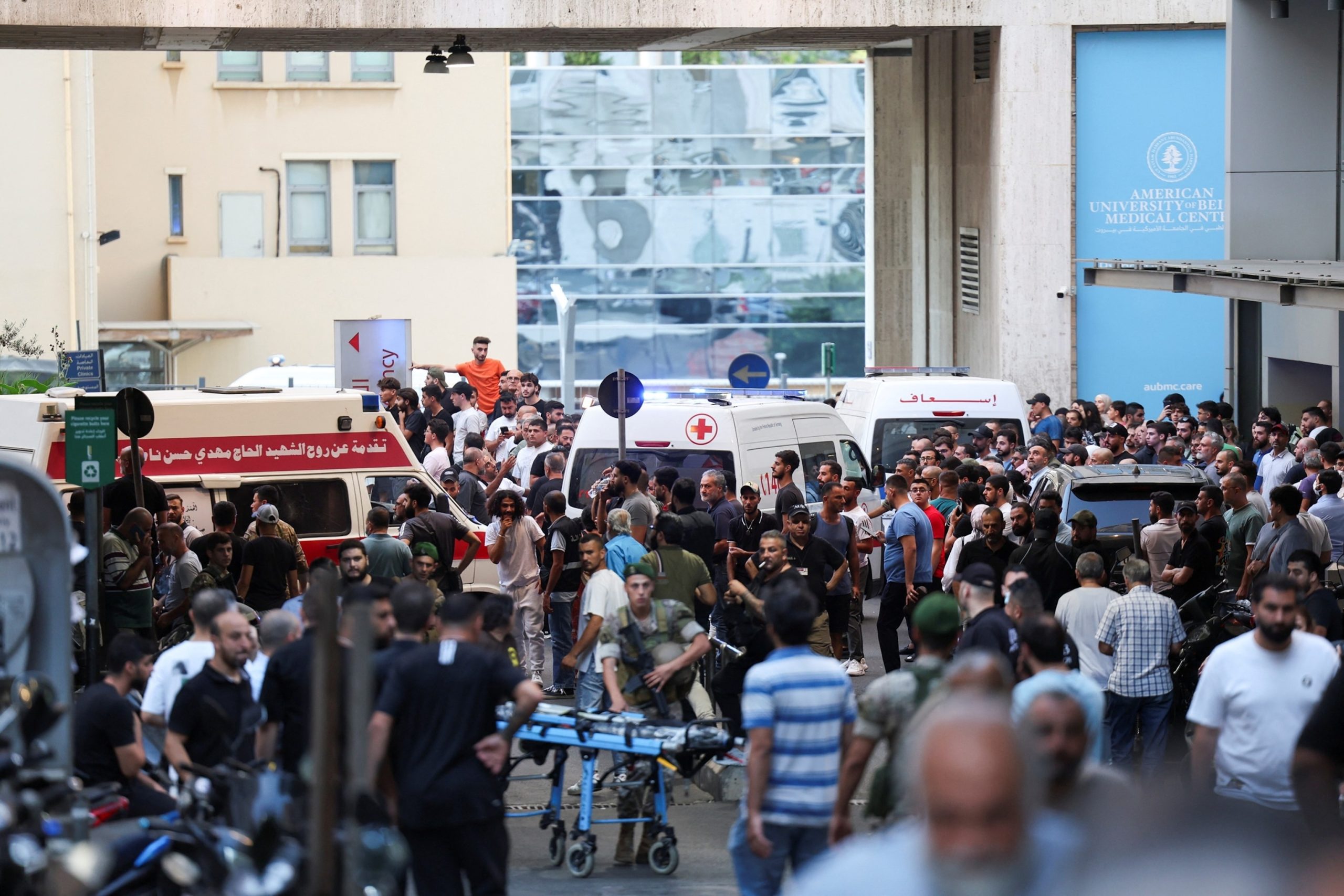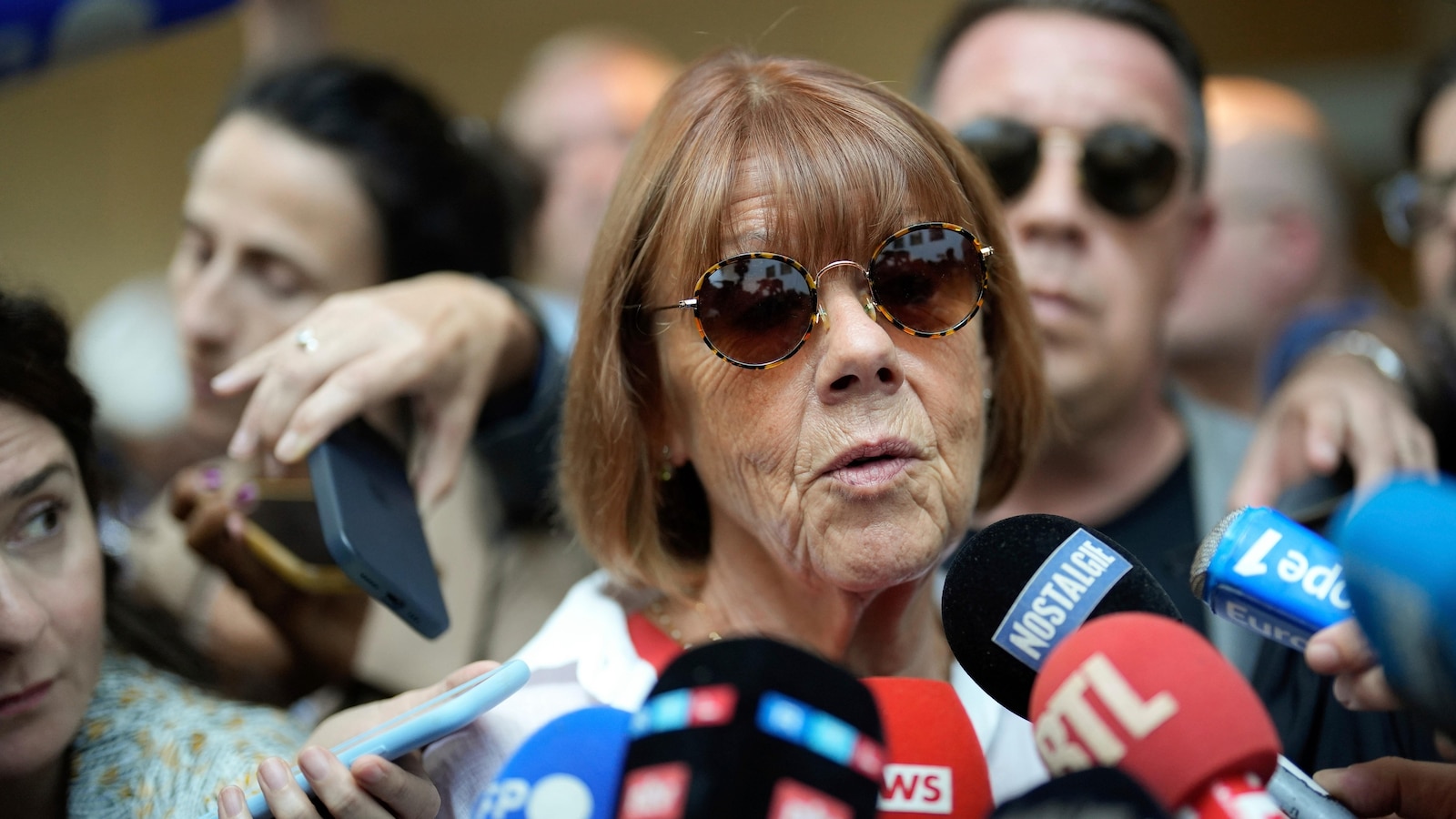
CAIRO — At least three dozen Palestinians were killed in multiple Israeli strikes in the southern Gaza Strip, officials said Saturday, even as preparations moved ahead for high-level cease-fire talks in the Egyptian capital.
Among the dead were 11 members of the same family, including two children, when an Israeli airstrike hit their home in the city of Khan Younis early Saturday, according to Nasser Hospital where the bodies and wounded were taken.
The hospital received a total of 33 dead who were killed in three separate strikes in and around Khan Younis. The city’s Al-Aqsa Martyrs Hospital said it had received another three bodies from an early Saturday strike.
Seventeen others were killed when a strike hit a road south of Khan Younis, including the passengers on a tuk-tuk and passers-by, Nasser Hospital said. Another strike hit a tuk-tuk east of Khan Younis, killing at least five people.
The Israeli military said it was looking into the reports but had no immediate comment.
First responders also recovered 10 bodies from a residential block west of Khan Younis, six from the Hamad City area of Khan Younis, and two farther south in Rafah. The circumstances of their deaths were not immediately clear, the hospital said, but the areas were repeatedly bombed by the Israeli military over the past week.
An Associated Press journalist at the hospital counted the bodies and filmed the funeral service in the hospital’s courtyard.
The war in Gaza broke out Oct. 7 when Hamas and other militants staged a surprise attack on Israel, killing some 1,200 people, primarily civilians. More than 100 hostages were released during a cease-fire last year, but Hamas is still believed to be holding around 110 more, about a third of whom are dead, according to estimates from Israeli authorities.
Israel’s retaliatory offensive has killed more than 40,000 Palestinians, according to Gaza’s Health Ministry, which does not distinguish between civilians and combatants in its count. The ministry said Saturday that a total of 69 dead and 212 wounded had been brought to hospitals across the strip over the past 24 hours.
The conflict has also caused widespread destruction and forced the vast majority of Gaza’s 2.3 million residents to flee their homes.
Experts were meeting Saturday to work through technical issues and pave the way for the high-level talks Sunday on a possible cease-fire mediated by the United States, Egypt and Qatar.
A Hamas delegation arrived Saturday in Cairo to meet with Egyptian and Qatari officials, senior Hamas official Mahmoud Merdawy told the AP. He stressed that Hamas will not take part directly in the Sunday talks, but instead will be briefed by Egypt and Qatar.
An Israeli delegation that arrived Thursday included David Barnea, the head of Israel’s Mossad foreign intelligence service, the head of Israel’s Shin Bet security service, and top general Maj. Gen. Eliezer Toledano.
CIA Director William Burns and Brett McGurk, a senior adviser on the Middle East to President Joe Biden, are leading the U.S. side of negotiations amid major differences between Israel and Hamas over Israel’s insistence that it maintain forces in two strategic corridors in Gaza.
The White House on Friday said the talks had been constructive and that progress had been made, without providing specific details.
The U.S. has been pushing a bridging proposal that aims at closing the gaps between Israel and Hamas, as pressure mounts for a cease-fire and fears grow over a wider regional war after the recent targeted killings of leaders of the militant Hamas and Hezbollah groups, both blamed on Israel.
Biden called Israeli Prime Minister Benjamin Netanyahu on Wednesday to stress the urgency of reaching a cease-fire and hostage release deal, and discussed developments with the leaders of Qatar and Egypt on Friday.
A major impasse has been the Philadelphi corridor alongside Gaza’s border with Egypt and the Netzarim east-west corridor across the territory.
Hamas is demanding a complete withdrawal of Israeli forces from Gaza, while Netanyahu has insisted that Israel must retain control of the corridors.
Hamas political official Bassem Naim said last week that the working proposal at the time had adopted Netanyahu’s demands, including that Israeli forces remain in control of both the Philadelphi and Netzarim corridors.
Ahead of Sunday’s talks, Merdawy said Hamas’ position had not changed from accepting an earlier draft that would include the full withdrawal of Israeli forces from Gaza.
_____ Rising reported from Bangkok. Associated Press writer Wafaa Shurfa in Deir al-Balah, Gaza Strip, contributed to this report.
___
Follow AP’s war coverage at https://apnews.com/hub/israel-hamas-war
As cease-fire negotiations continue between Israel and Hamas, casualties have been reported in Gaza as a result of recent strikes. The ongoing conflict in the region has once again escalated tensions and raised concerns about the safety and well-being of civilians caught in the crossfire.
According to reports from the Gaza Health Ministry, at least 20 Palestinians have been killed and dozens more injured in Israeli airstrikes over the past few days. Among the casualties are women and children, highlighting the devastating impact of the violence on innocent civilians.
The Israeli military has stated that its airstrikes are targeting Hamas militants and infrastructure in response to rocket attacks from Gaza. However, the high number of civilian casualties raises questions about the proportionality of the military’s actions and the potential violation of international humanitarian law.
Meanwhile, efforts to negotiate a cease-fire between the two sides are ongoing, with mediators from Egypt and the United Nations working to broker a truce. Both Israel and Hamas have expressed willingness to engage in talks, but deep-rooted grievances and mistrust between the two parties continue to complicate the peace process.
The international community has condemned the violence in Gaza and called for an immediate cessation of hostilities. The United States, European Union, and other key players have urged both sides to exercise restraint and work towards a peaceful resolution to the conflict.
As casualties mount and tensions remain high, it is crucial for all parties involved to prioritize the protection of civilians and adhere to international law. The cycle of violence in Gaza has caused immense suffering for the people living in the region, and a lasting peace can only be achieved through dialogue, diplomacy, and respect for human rights.
While progress is being made in cease-fire negotiations, the situation on the ground remains volatile and unpredictable. It is imperative for all stakeholders to redouble their efforts towards de-escalation and finding a sustainable solution to the conflict in Gaza. Only through a genuine commitment to peace and justice can the cycle of violence be broken and a brighter future secured for all those affected by the ongoing crisis.


